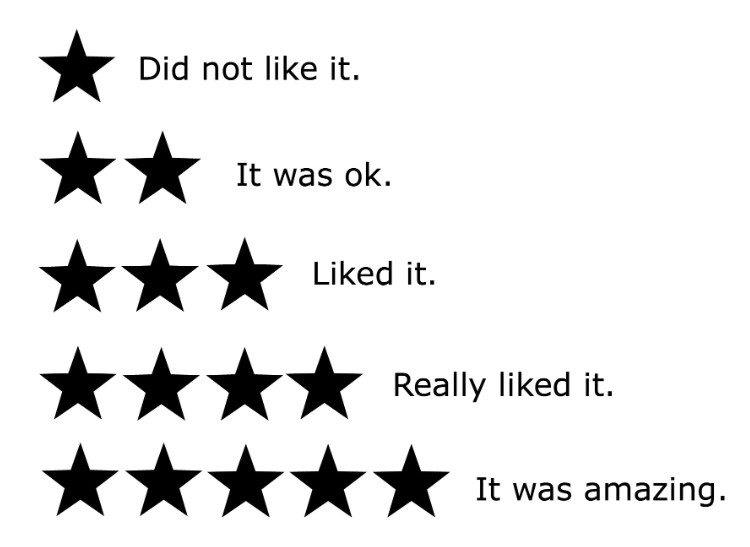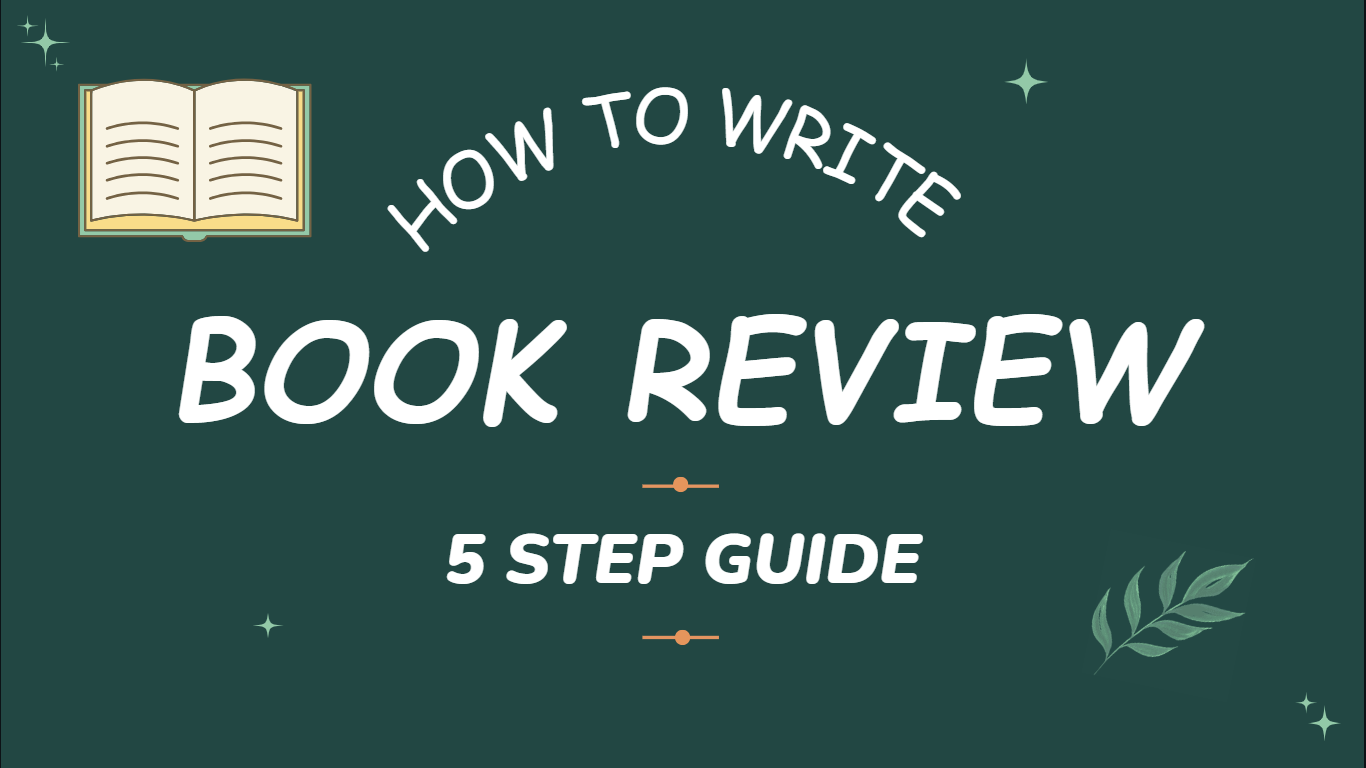You just finished a book that you couldn’t put down. Now you want to share your thoughts. Writing a book review can be fun!! But don’t know how to write a book review? Then don’t worry, I will tell you how to write a book review. I promise you’ll have fun in the process and it’s easier than it sounds. A book review is a wonderful way to share your thoughts about the latest bestseller or the classic novel that you just read. In this article, I will show you how to write a book review in just 5 steps.
How to Write a Book Review
Let me clear that there is no specific way to write a review. A review should be your unique way to express your thoughts and feelings. Now you may ask- why I should read this how to write a book review guide. The answer is- this how to write a book review will help you to know what things are important in a book review, and which things you should consider. This guide will just give you a base but you have to build the house on it. I hope you got the idea. So now let’s look at those 5 steps to writing a powerful book review-
Step 1: Read the Book Thoroughly
It’s obvious, but you would be surprised how many people skip this step. Once I attempted to review a book I hadn’t finished reading (it didn’t go well). The plot lines and characters mixed and my friends were left more confused than enlightened. So, take your time. You have to read the book from cover to cover.
Tips for Effective Reading
- Take Notes: While reading, take notes of your favorite quotes or any feelings that come up during the reading. Sticky notes are my thing and by the time I finish, my book is a rainbow of colors.
- Reflect on Your Emotions: What did the book make you feel? Did you ever have a moment when you laughed, cried or threw the book across the room? (I’ve thrown books before and plenty of times!)
- Understand the Context: Find out about the author and the background of the book. It can help you appreciate the work on a deeper level. The historical novel I remember reading had the author’s personal experiences heavily influence the story. This made reading so much richer!
Suppose you are reading a mystery novel. See what clues the author leaves behind as you go through the chapters. Make note of your guess about whom the culprit is. If you are writing your review at the time, you can explain your thought process as to whether or not you were right or wrong.
Step 2: Summarize the Plot
When you have finished the book, now it’s time for a brief summary. It’s your chance to tell people what the book is about without giving away too much. It’s like allowing someone to sample a bite without having the whole dessert!
How to Summarize Effectively
- Keep It Short: Try to summarize the main plot of the story without going into every detail. You don’t want to ruin the story for possible readers.
- Focus on Key Elements: Find out who are the main characters, where the setting is and what is the conflict. It will give readers an idea of what to expect.
- Use Your Own Words: Don’t copy the full story of the book. Instead, put your spin on it. It becomes more personal and interesting.
For a fantasy novel with an intricate world, I remember writing a review. I wrote a summary that was too long and a friend told me “I love your passion, but I don’t need the entire world building history right now!” Thus, I figured out how to make it brief- only the essentials.
Step 3: Analyze the Book
In this, you dive deeper into your thoughts and opinions. What did you like or dislike? Did you relate to the characters? Was it too slow or just right?
Key Points to Consider
- Character Development: The characters were believable, were they not? Were they growing the entire time? I have read books where the protagonist was more like a cardboard cutout than a real person and that’s always a letdown.
- Writing Style: What did the author’s style do for your reading experience? For example, if the writing was lyrical and beautiful I sometimes reread sentences out of pure joy of the language.
- Themes: What themes stood out to you? What was the book about – love, friendship, betrayal or something else? There is a connection between the themes and your personal experience that you can connect the dots between.
What if you were to review a coming of age story? It could be how you grew up, you could relate to it. Perhaps your moment in the book was something that mirrored your challenges. This can help you share this and create a connection with your readers because they will feel like they are having a conversation with you.
Step 4: Share Your Opinion
After you have analyzed the book, it’s time to share your personal opinion. That is where your voice comes through! Be honest but constructive.
Crafting Your Opinion Tips
- Be Specific: You don’t need to say, “I didn’t like the characters,” just explain why. Or maybe their motivations weren’t clear or they felt unrealistic.
- Balance Positives and Negatives: It’s easy to exult a book you loved or denigrate one you didn’t, but try to be even-handed. Building your credibility is greatly helped by a well rounded review.
- Use Examples: Support your opinion with specific scenes or quotes. That shows you are not just throwing random thoughts, you’ve thought about your review.
I have written one review for a romance novel that could have been good but was not. I pointed to a particular scene that felt forced and I just gave a hint to my readers, they understood what I meant. Sometimes being honest can be funny. “But why did it take the couple so long to realize they liked each other?” “Which one of these mysteries could I have solved in five pages, I wonder?”
Step 5: Conclude and Rate the Book
As with every good review, you’ll need to wrap it up with a conclusion. Share what you think and make a recommendation. Do you recommend this book to a friend? So is it for everyone or just a specific audience?
I often joke that my rating scale is based on how many cups of coffee I’d need to read past the first few words of a book. A five cup book is a page turner, a one cup book might just be perfect for a cozy blanket and a nap.

Make a Strong Conclusion
- Recap Your Main Points: Provide the highlights of your review in a few lines. By doing this, readers have a chance to remember your key takeaways.
- Provide a Recommendation: If you’re asking whether others should read it, state clearly whether you think that. Something like: If you like character driven stories this one is for you!
- Rate the Book: Star systems or scores out of five/ten are the systems many reviewers use. Regardless of what method you choose to write about it, make sure that your opinion of the event is reflected in it.
Final Thoughts

Final Thoughts
I hope now you know how to write a book review, it’s not rocket science. Writing a book review has many benefits- if English isn’t your first language, it can help build your confidence in writing. Also sharing your opinions with other people can start meaningful discussions and connections.
Keep in mind, that a book review should not be written in the ‘right’ way. Make it your own! Bring your voice, your experiences and your insights- the important thing is to be honest and interesting.
Pick up that book you want to review, follow these five steps and let your thoughts flow. Happy reviewing!
You can read The Best Books of 2024 and start writing your reviews.










Leave a Reply